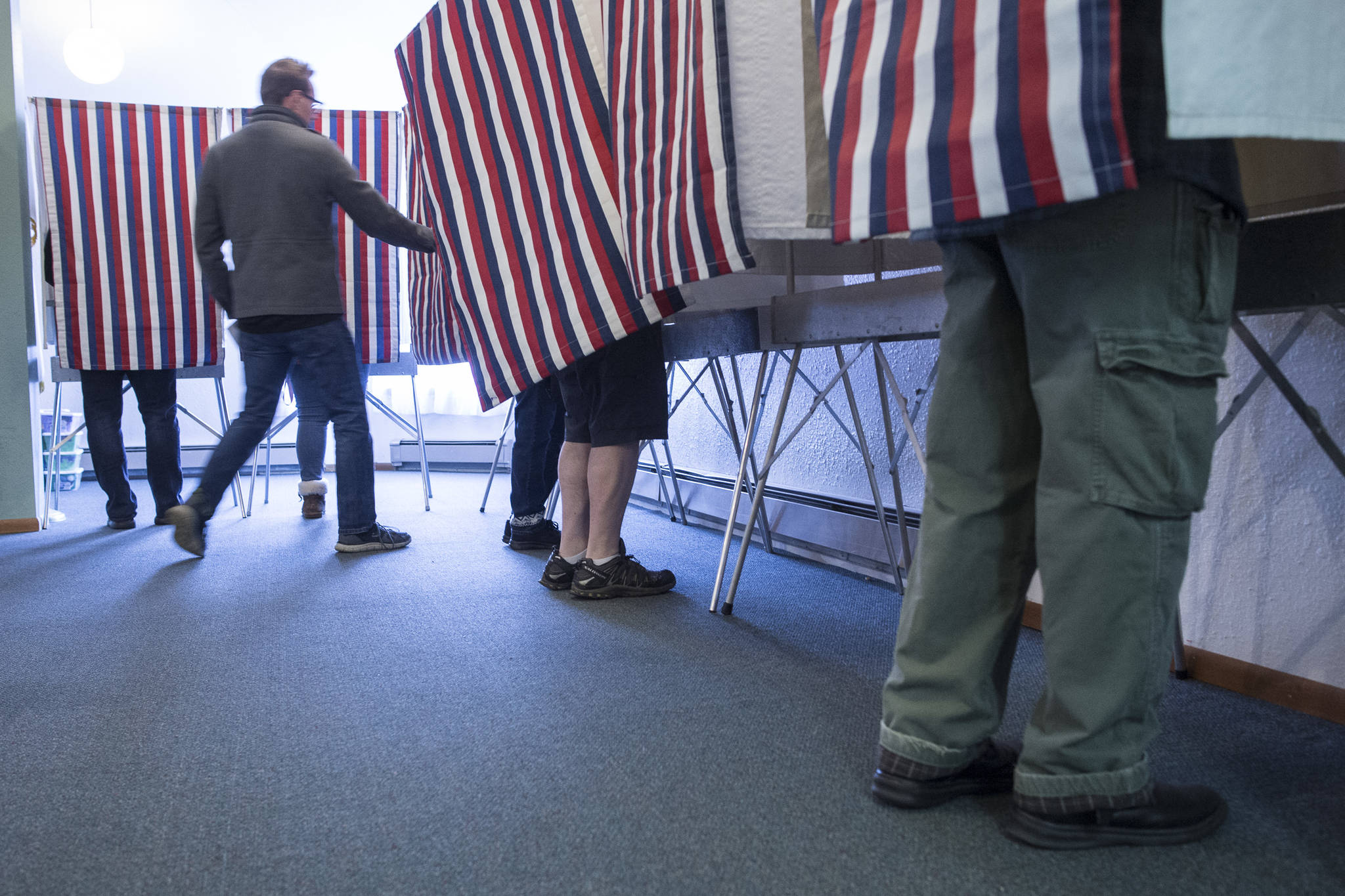Claiming his father’s election and Brexit were both an “overwhelming mandate for change” is proof Donald Trump Jr. doesn’t know the definition of overwhelming or what a real mandate looks like. Seriously. Our 45th president lost the popular vote by 2 percent. And the four-point Brexit spread wasn’t just small. It must be put in the context of public consent given without knowing the details of the deal.
The last point applies to the election of Gov. Mike Dunleavy and his proposed budget. And there’s an Alaska story to back it up.
A few days after Trump Jr. offered his hubristic opinion to readers of the The Telegraph, hundreds of thousands of Londoners took to the streets to demand a second referendum. They believe that the people should be entitled to vote on the actual Brexit deal negotiated by the United Kingdom and European Union.
[Opinion: New Zealand’s quick action on gun control shames the U.S. Congress]
The Alaskans who formed the original Fiscally Responsible Alaskans Needing Knowledge (FRANK) Committee would agree with the protesters. In 1978 they put that idea on the ballot.
Four years earlier, the state voted 57-43 to build a new capitol at an undetermined location at least 30 miles from Anchorage and Fairbanks. The Legislature was given direction to fund it and ensure construction began by 1980. Like Brexit, the details, including the cost to the taxpayers, would be worked out later.
But a group that called themselves FRANK managed to get a measure on the 1978 general election ballot that would force the voters to approve the cost of the new capitol. It passed. And in 1982, Alaskans decided the $2.8 billion price tag was too high. The capitol stayed in Juneau.
The six-point margin that undid the 1974 vote wasn’t very convincing though. So a decade later the question came up again. That proposal to move the capitol to Wasilla was rejected by more than nine points.
[Opinion: Alaska’s budget must be brought in line with our ability to pay for it]
More significant was the result of a related measure on the same ballot. The language of the 1978 FRANK initiative was reaffirmed by an overwhelming 77 percent of Alaskans. The meaning of that vote may be best expressed by quoting Thomas Jefferson. “An informed citizenry is the only true repository of the public will.”
The problem with most elections, however, is the results tell us nothing about the will of an informed majority unless candidates for public office disclose the details of their policy agendas. And that rarely happens.
Consider the 2010 election of Gov. Sean Parnell. The first time he proposed revisions to the Alaska’s Clear and Equitable Share oil tax law was four weeks before voters went to the polls. It was a nothing more than work in progress.
Parnell’s full plan made its debut in the Legislature a few months after his 21-point landslide victory. But the appearance of a mandate didn’t translate into widespread public support for it or for a second proposal the following year. The Legislature shot both down. His third attempt squeaked by the Senate and was immediately met by a citizen funded repeal effort. That failed. But so did Parnell’s re-election bid two months later.
[Opinion: The grasshopper, the ant and the PFD]
In the 2002 governor’s race, Frank Murkowski bested his closest opponent by 15 points. But he accomplished little of his primary campaign promise to grow the economy by developing Alaska’s natural resources. More revealing was his mistaken assumption the public would support him after appointing his daughter to fill the U.S. Senate seat he vacated, bypassing the Legislature on a gas pipeline deal and purchasing a $2.7 million jet. That all contributed to him being routed by Sarah Palin in the 2006 Republican primary.
The mistaken mandate of those stories is captured by the re-election high President George W. Bush felt in 2004. “When you win, there is a feeling that the people have spoken and embraced your point of view.”
Illusion would have been the better description related his biggest domestic policy goal. The public couldn’t have embraced a plan to privatize Social Security because he hadn’t shared it.
Likewise, Alaskans learned of Dunleavy budget cuts two months after he was sworn in. So November’s vote, of which he got only 51.4 percent, doesn’t reflect the true “public will” on the matter. And he’ll never know what it is by marching to an Election Day mandate that he couldn’t have been given.
• Rich Moniak is a Juneau resident and retired civil engineer with more than 25 years of experience working in the public sector. He contributes a weekly “My Turn” to the Juneau Empire. My Turns and Letters to the Editor represent the view of the author, not the view of the Juneau Empire.

